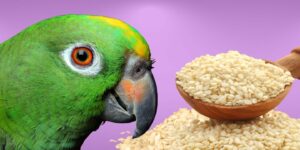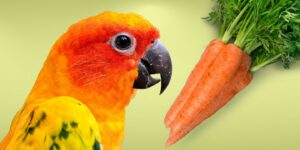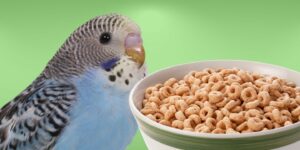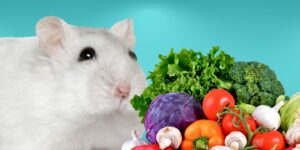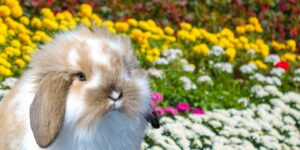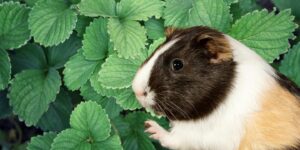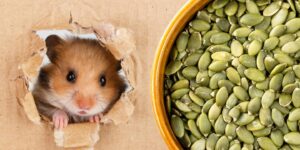No, rabbits should not eat cat food. As herbivores, rabbits need a diet that is high in fiber and low in protein and fat. Feeding them cat food can be harmful to their digestive system and lead to malnourishment or obesity. In this article, we will discuss the differences between rabbit and cat diets, what rabbits should eat instead, and guidelines for keeping your rabbit healthy.
Importance of a Proper Diet for Rabbits
A proper diet is essential for rabbits to maintain their health and well-being. Rabbits have a unique digestive system that requires a specific balance of nutrients. Feeding them the wrong foods can lead to various health issues ranging from mild to severe.
Overview of Rabbit's Digestive System
The rabbit's digestive system is designed to process high-fiber foods. It functions through a process known as hindgut fermentation, which allows them to extract essential nutrients from fibrous plant materials. This is why rabbits require a diet high in fiber and low in proteins and fats.
Differences between Rabbit and Cat Diets
Cats, on the other hand, are obligate carnivores. Their diet primarily consists of high-protein and high-fat animal-based foods. This is vastly different from a rabbit's nutritional requirements, and feeding cat food to rabbits can lead to detrimental outcomes.
Why Can't Rabbits Eat Cat Food?
Differences in Digestive Systems
As mentioned earlier, rabbits have a unique digestive system that is designed for a high-fiber, plant-based diet. Cats have a digestive system suited for processing animal proteins and fats. Feeding cat food to rabbits can disrupt their digestive process and cause harm.
High Protein and Fat Content in Cat Food
Cat food is typically high in proteins and fats, which can lead to health issues in rabbits. A diet high in protein and fat can lead to obesity, kidney issues, and other health problems in rabbits.
Lack of Necessary Nutrients for Rabbits in Cat Food
Cat food does not provide the essential nutrients required for a rabbit's health. It lacks adequate fiber and other vitamins and minerals necessary for optimal health in rabbits.
Potential Health Issues for Rabbits Eating Cat Food
Feeding cat food to rabbits may result in various health issues, including digestive problems, malnourishment, and obesity. In severe cases, the consumption of cat food can even be fatal to rabbits.
What Should Rabbits Eat Instead?
Importance of Hay in a Rabbit's Diet
Hay should make up the majority of a rabbit's diet and be available at all times. It provides essential nutrients and aids in maintaining proper digestion, dental health, and preventing obesity.
Types of Hay Suitable for Rabbits
There are various types of hay that rabbits can consume, such as:
- Timothy hay
- Orchard grass hay
- Meadow hay
- Oat hay
Fresh Vegetables for Rabbits
Rabbits can benefit from consuming fresh vegetables as well. Some safe vegetables for rabbits include:
- Carrots
- Lettuce (romaine and leafy green varieties)
- Spinach
- Bell peppers
- Broccoli
However, avoid feeding vegetables like iceberg lettuce, onion, and potato to rabbits.
Rabbit Pellets
Rabbit pellets provide additional nutrients necessary for optimal health. Choose pellets with a high-fiber content and aim for a portion size of about 1/4 cup per 5 pounds of body weight daily.
Feeding Guidelines for Rabbits
How Much Should a Rabbit Eat Based on Age and Size
- Baby rabbits: Unlimited alfalfa or timothy hay, small amounts of pellets, and introduce vegetables gradually.
- Adult rabbits: Unlimited hay, a small number of pellets (1/4 cup per 5 pounds of body weight), and 1-2 cups of fresh vegetables daily.
- Senior rabbits: Consult your veterinarian, as the diet may need adjustments based on their individual health needs.
Monitoring Food Intake and Body Weight
Regularly monitor your rabbit's food intake and body weight to ensure they are eating the appropriate amount and maintaining a healthy weight.
Signs of Malnutrition or Obesity in Rabbits
Observe your rabbit for signs of malnutrition or obesity, such as weight loss or gain, lethargy, and changes in fecal output. Consult your veterinarian if you notice any problems.
Foods to Avoid for Rabbits
Some unsafe foods for rabbits include:
- Fruits and vegetables high in sugar or starch (e.g., bananas, grapes, and peas)
- Human foods, such as chocolate or bread
- Other pet foods not designed for rabbits
Tips for Keeping Your Rabbit Healthy
- Schedule regular veterinary checkups
- Provide a clean and safe living environment
- Offer mental stimulation and exercise
Conclusion
In conclusion, rabbits should not eat cat food due to the significant differences in their nutritional requirements. A proper rabbit diet includes hay, fresh vegetables, and a small number of pellets. It is crucial to monitor your rabbit's food intake and body weight and consult your veterinarian if any issues arise. By providing an appropriate diet and necessary care, you can help ensure your rabbit's health and well-being.



